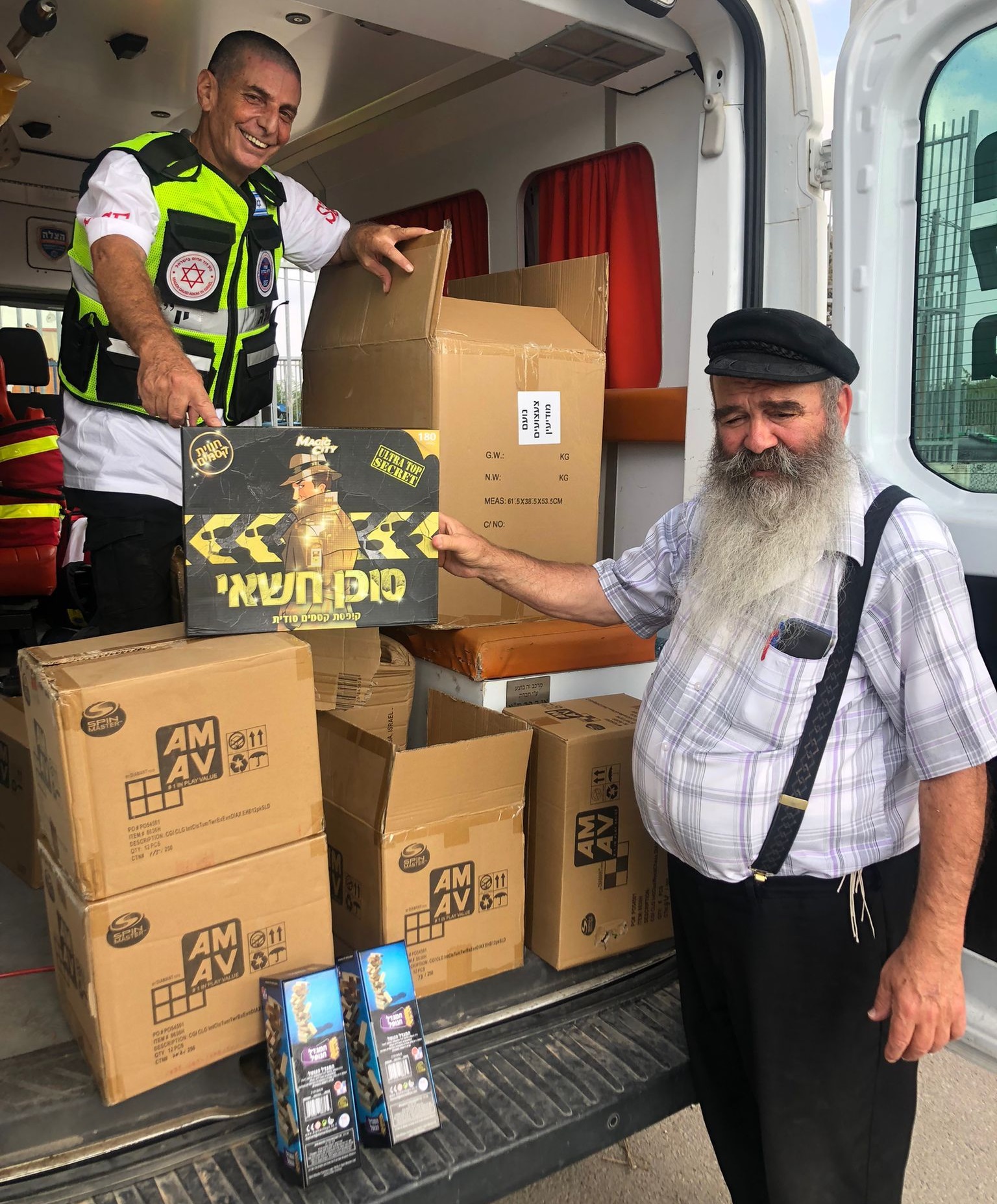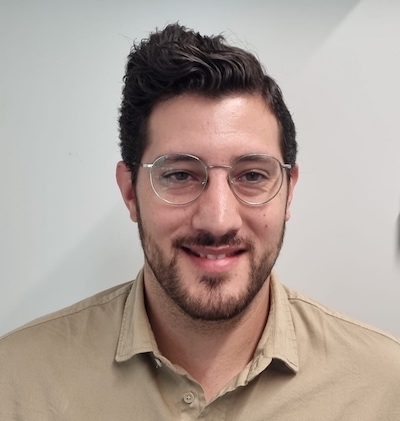How Joseph Project’s crisis experience helps Israel in its darkest hours
The team aims to live up to the example of the biblical Joseph - to always be ready

The aid organization Joseph Project (JP) is named after the biblical Joseph, son of the patriarch Jacob. The Bible tells us that Joseph was appointed the second man to the Pharao of Egypt and given the power to gather food in large storehouses to be prepared for the seven years of famine coming over the land.
The Joseph Project team aims to live up to his example, striving to always be ready to extend support when crisis strikes. So when Hamas terrorists invaded Israel on October 7 and threw the country into its worst situation since the Yom Kippur War exactly 50 years earlier, the Joseph Project was ready.
Within hours on that day, JP began supplying soldiers and civilians with supplies it had already stocked in its large storehouse in the Judean Hills. “We already had bags for soldiers, batteries for soldiers, whatever was needed for soldiers and civilians,” Suzie, project manager at JP told ALL ISRAEL NEWS.
At the start of the war, supermarkets shut down in large areas of the country, especially near the borders with Gaza and Lebanon. Thanks to their inventory, JP could immediately begin distributing toys, diapers and food, even in areas like the city of Sderot that were closed military zones for several months.
Using their experience and their skills in navigating Israel’s famously byzantine bureaucracy, the team of JP, for example, imported over 1 million diapers from China. The war also exacerbated the existing problems that JP is tackling in its day-to-day operations. Through evacuations or reserve army service, many people couldn’t continue working their jobs and poverty rose across all sectors of Israeli society.

One of JP’s many ongoing initiatives is the food project, which began during the Corona pandemic. Similarly to today’s war, the pandemic was a time when poverty spread, increasing food insecurity for many people who aren’t recognized by the state as being under the poverty line.
JP launched its own food program despite the fact that other aid organizations are already tackling this problem by donating basic foodstuffs. “This is not to be ignored at all,” emphasized Rebecca, who is leading JP’s food program.
“But who is living from this food? Children, who grow up on food that hurts them in the long run. There is a known and researched connection between lifestyle and consumption of unhealthy food with sicknesses like diabetes, weight increases at ever younger ages, and problems that have a clear connection to food.”
In times of sickness and war, JP aims to donate food that contributes to physical and mental health. The team therefore designed special food packages that include better alternatives to basic and known food. They will, for example, include olive oil instead of processed oils, superfoods like raw tahini, and full-wheat products – food that isn’t usually part of food donation drives.
For those who didn’t grow up eating healthy, JP offers courses that give them the right mental approach to improve their health through good food. “Through the courses, we try to make healthy food approachable for people, and give them tools on how to prepare it, how to use it, what they can buy that is healthier but not expensive,” Rebecca explained.
The courses are also especially aimed at weaker populations and those in need. They receive a practical cooking lesson, and afterward, receive their food package and explanatory fliers with recipe ideas.
Projects like the food packages are running in parallel to quick responses to any concrete situation that might arise. The last years have been a non-stop disaster training for JP, beginning with the Corona crisis and continuing with the war in Ukraine.
JP’s logistics team leader Misha immigrated to Israel from Ukraine and heard about the horrible situation firsthand from his parents, who still live there.
Soon after Russia invaded Ukraine, JP began using its expertise to send containers full of medical supplies, clothes, and diapers to the beleaguered country. They also supported an orphanage that is connected to a church in Kyiv and supplied generators and boats to the areas impacted by a huge dam break.
As it always does, JP strove to partner with people and organizations they knew were trustworthy, thus ensuring the aid reached the desired destination. “We can follow after it, not just send it and believe it goes somewhere and helps somebody… that’s not to be taken for granted,” Misha stressed.
Soon after the Ukraine war began, a massive earthquake devastated large parts of southeastern Turkey and northern Syria. Through local contacts on the ground, within two weeks JP sent around 10 containers with equipment from Israel, packed with the help of hundreds of local volunteers.
The situation in Turkey brought its specific challenges, for example when it was noticed that the Hebrew labels on Israeli-produced blankets would be a problem in the mostly Arab Muslim population of the region. “We had to, with volunteers, remove all the Hebrew inscriptions,” Suzie said. “Because if not they would’ve burnt it. We prayed over it and sent it there.”

All of these crises prepared the JP team to respond to challenges in Israel, Suzie explained. “All the big recruitment drives we did for other countries, we did it because we believe it’s the right thing to do, and we also understand that… it adds to our practical, real experience of how to act better and faster in the time of need here.”
Because of the Ukraine war, many Ukrainian Jews and refugees came to Israel, often arriving only with the clothes on their backs and no access to their bank accounts. In response, JP developed their “First Home” packages, which include all the basics one needs to furnish an apartment, like basic furniture, pillows, blankets, covers, cookware, towels, etc.
These packages now help the around 80,000 internally replaced Israeli refugees. Among them are many residents from the Gaza border who were evacuated at the end of the summer and didn’t pack their winter clothes. To help them, JP organized a big donation of clothes and arranged them in a pop-up store, enabling the refugees to feel like they're "shopping" while stocking up on warm clothes.
As the Kibbutzim at the Gaza border are tight-knit communities, most of their residents stayed together and moved to hotels as one closed group. JP’s logistics team was instrumental in helping them get acclimated, helping them with moving trucks and in two instances, even transporting the complete furnishings of entire schools across the country to their new residences.
A growing wave of needs is now coming in the form of recovering IDF soldiers who were injured in the war. One of the many examples is Amitay Argaman, who was grievously wounded by an explosion while fighting in northern Gaza. After months in the hospital, Argaman is now moving into a new apartment together with the family of his sister, who themselves are refugees from Sderot. JP is helping them furnish their apartment, to try and make the long road to recovery easier on them all.
With Israel bracing for the potential war on the northern border, JP is gearing up for the next challenge. It has been supporting residents of the beleaguered city Kiryat Shmona since skirmishes began there last October, and supplied mattresses and containers for the thousands of reserve soldiers to sleep in during the cold Galilean winter.

In anticipation of the widespread impact on the country the war would bring, JP is now producing special bunker packages with healthy and nutrient-rich food that can be stored and doesn’t spoil quickly.
Summing up, Suzie said, “We very much have our hand on the pulse of what is needed now, with the war, the refugees… at the beginning it was all soldiers, bring the soldiers equipment, socks, whatever they need, ok. Then refugees, now families who need to get out of the hotel and need to get back to their lives.”
The team is constantly analyzing the last big challenge to stay one step ahead. “This is really our challenge, to continue to answer the current needs, and to know that it’s possible that there will be another great need, and to restock and prepare for it,” Suzie said.
If you want to help the Joseph Project team fulfill its vision, please pray for them to maintain their readiness for any emergency and for wisdom on how to best serve the Israeli society in the case of a nationwide disaster, like a northern war or even an earthquake.
To find the best way to donate aid, or money, which will also strengthen Israel’s economy by buying local equipment, visit their website.

Hanan Lischinsky has a Master’s degree in Middle East & Israel studies from Heidelberg University in Germany, where he spent part of his childhood and youth. He finished High School in Jerusalem and served in the IDF’s Intelligence Corps. Hanan and his wife live near Jerusalem, and he joined ALL ISRAEL NEWS in August 2023.














